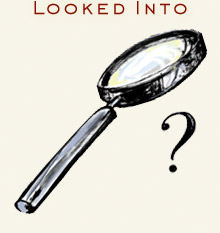Emdashes—Modern Times Between the Lines
The Basics:
About Emdashes | Email us
Ask the Librarians
Best of Emdashes: Hit Parade
A Web Comic: The Wavy Rule
Features & Columns:
Headline Shooter
On the Spot
Looked Into
Sempé Fi: Cover Art
Although We Are No Longer a Blog Exclusively About The New Yorker
Filed under: Looked Into Tagged: Barack Obama, books, David Remnick, events, interviews, New Yorker, Ta-Nehisi Coates, Washington Post

…we continue to be admirers of the magazine and many of its contributors, naturally. We’ll still be posting about New Yorker-related stuff, just alongside a wider range of other subjects. Here’s the transcript of today’s Washington Post live Q&A with David Remnick about his new book, The Bridge: The Life and Rise of Barack Obama. Martin wrote up the recent New York Public Library conversation between Remnick and Ta-Nehisi Coates.
Here’s a snappy answer to a stupid (or maybe just absurdly vague) question:Johannesburg, South Africa: Shortly after President Obama was inaugurated the U.S. media let slip that directly after law school President Obama encountered a dark cloud. The insinuation was that he had fallen into bad company. And then gone on to a meteorically successful private career in Law. Although I haven’t read your book, I would be interested to hear what you say about this.And a taste of Remnick’s reading life:
David Remnick: It doesn’t sound like reality to me.
Delaware: Your book, Lenin’s Tomb, is one of my favorite books ever. I initially read it for a Russian history class in college. I’ve read it at least twice since then, each time more impressed with how prescient and cogently organized it is. I’m looking forward to picking up The Bridge this weekend. Wondering, what do you enjoy reading (besides The New Yorker)?—E.G.
David Remnick: Thanks so much! I really appreciate that. I was delighted to see that my old friend, David Hoffman, at the Post just won a Pulitzer for his extraordinary book on secret Soviet weapons programs. The strangeness, the darkness, and the complexity of the world under Soviet rule remains a subject of great fascination for me, so that is one area where I try to keep up. And I try to read and re-read work by writers like Josef Brodsky, and Nadezhda Mandelstam, and Anna Akhmatova, as much as I can. I read, both for my work and my life (sometimes I wonder about the differene) pretty omnivorously. Not long ago I finished a slender, profound book about Jewish history called “Zakhor” by Yerushalmi and right now I am reading a couple of novels: one by David Grossman, called To the End of the Land, and a book of short stories by Denis Johnson. There is a huge new history of Christianity by MacDiarmid that just landed on my desk with a thud, but I am determined to read it.




Comments
There’s an awful lot of Remnick idolatry going on right now. Am I the only one with reservations about his approach to journalism? Remnick likes to hobnob with (and write about) bigwigs. I prefer writers like Liebling, Mitchell, Frazier and Singer whose sympathies are with the little man, the underdog, people who lead unconventional lives, people whose lives at times are more than a little crazy and messed up. There’s a moralistic streak in Remnick that’s off-putting. His carving up of Mike Tyson (“In the ring, at this moment of greatest pressure, he had lost everything: he had proved himself to be what in gentler times would have been called a bum”) is sickening. Ditto for the hatchet job he did on Gary Hart (“Now he was a living punch line”). His shot at Norman Mailer in “Lenin’s Tomb” (“There were times when Afanasyev, with his supreme confidence, reminded me of Norman Mailer. He knew he had lived a life full of mistakes but he insisted on being heard”) is typical of his supercilious judgmemtalism. In Remnick’s world, success is everything. If you make mistakes, you’re a bum. There’s another approach to human weakness besides smugness. See for example David Runciman’s piece on John Edwards in the current London Review. Runciman could’ve done to Edwards what Remnick did to Hart, but instead he finds in the ruins of Edwards’s career something interesting, something almost praiseworthy, namely, Edwards’s ability to hold his campaign together, and present a reasonable face to the public, despite all the madness going on behind the scenes. Runciman says of Edwards: “At times his ability to compartmentalize seems to border on genius.” What a refreshing response! So different from the deplorable de haut en bas moralizing practiced by most journalists, including (it pains me to say it) the editor of the greatest magazine in the world.
Speaking of The New Yorker, I hope someone fixes this hed as we speak on the online version: ‘Scenes from a Earthquake.’ Um, An?